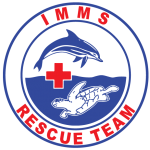Due to COVID-19 we are currently not accepting new volunteers.
A: Begin by completing our Volunteer Application; if we have opportunities that appear to fit your schedule and interests we will contact you for more information, or to schedule an interview. For insurance purposes, all volunteers must be at least 18 years of age.
These activities include, but are not limited to:
Beach Stranding Surveys: Volunteers are needed to help walk designated areas of beach in Harrison, Hancock, and Jackson Counties, as well as the perimeter of the barrier islands. During these walks, volunteers survey our beaches for stranded dolphins and endangered sea turtles (dead or alive). These surveys are an integral part of the research we do on stranded dolphins along the Mississippi coastline. We collect information from the remains of dead, beach cast dolphins and send tissues for laboratory analysis in an effort to learn more about trends and causes of these strandings in our area. This is an excellent experience for science majors. This is also an opportunity to take an invigorating boat trip in the Mississippi Sound with the potential to see wild dolphins on the way to the islands! Surveys are conducted monthly or bi-monthly, year-round, with the exception of spring months when we conduct surveys weekly.
Educational Programs: School groups frequent the Center for Marine Education and Research (CMER) throughout the year. Volunteers are invaluable at these events and play a number of roles. Volunteers are trained to be leaders to a small group of 5-25 students. They are also trained to act as docents at a variety of museum exhibits and as educators at our touch pool in the Discovery Room.
Community Outreach Events: IMMS is often invited to set up a table or booth at community festivals such as Earth Day and Celebrate the Gulf. At these events, staff and volunteers create awareness and educate the public about marine mammals and their environment.
Animal Care & Training*: Volunteers will help the training staff care for the resident Atlantic bottlenose dolphins, California sea lions, and tropical parrots. Heavy emphasis is placed on basic tasks such as food preparation and daily cleaning. Volunteers will observe staff working and training all the resident animals. Enrichment is also very important to the well-being of our animals and volunteers may be asked to help make new enrichment devices for our dolphins and/or birds. Volunteers should come prepared to work around water, handle fish, and be outside in all weather conditions.
*Working with and around marine mammals is a job and privilege that we take very seriously. Only those volunteers who have proven to be dedicated, responsible, and reliable will be given opportunities in the animal care department.
Stranding/Veterinary: Provides hands-on opportunity to assist the rehabilitation and veterinary team in conducting husbandry and treatment procedures on live rescued sea turtles and dolphins. It would also include assisting the Stranding staff members in performing data collection procedures, following NOAA protocols, for dead sea turtles and dolphins. Volunteers who are interested in expanding their biologic background are welcome to participate in necropsies (animal autopsies) that are performed at IMMS/CMER.
Aquaria/Discovery Room: The IMMS Discovery Room is home to many crustaceans, fish, sharks, rays, fresh water turtles, snakes and alligators that require daily care. Volunteers in the Discovery Room have opportunities to assist with feeding, water quality testing, and basic aquarium maintenance while learning more about the life history of the many species on display.
Q: How many hours do you have to commit as a volunteer?
A: Core volunteers must be able to commit to at least 8 hours a month. Summer volunteers must be able to commit to at least 20 hours a month. All new volunteers must complete 24 hours of orientation & evaluation with the Education (Public Programs) group.
Q: Do I need to live in the local area to volunteer?
A: Yes, our experience is that volunteers who do not live on the MS Gulf Coast are generally not able to meet the minimum hours committment we require on a consistent basis.
Q: Can I complete community service volunteer hours for my college class?
A: Normally we cannot take short-term volunteers due to the amount of training needed for volunteers to become productive in their roles. However based on seasonal needs there may be opportunities to participate in beach stranding surveys.
Q: Can I volunteer just for the summer?
A: Normally we cannot take short-term volunteers due to the amount of training needed for volunteers to become productive in their roles. For college students or recent graduates wishing to work with IMMS during the summer an internship is the most appropriate path. However we may accept a limited number of summer volunteers who display exceptional aptitude, motivation, and maturity, and are willing to work in roles determined by the needs of IMMS’s summer season.
Those wishing to volunteer during the summer should contact the Volunteer Coordinator and submit an application by May 1. Summer volunteers must commit at least 20 hours a month to their work at IMMS, and like all volunteers their first 24 hours will be spent in Orientation with the Education (Public Programs) group.
Q: Can I volunteer while my child is in summer camp?
A: It may be possible for a parent, grandparent, or guardian to volunteer while their child is attending the IMMS summer camp. This must be evaluated on a case-by-case basis, and you would not be able to volunteer in the class that your child is attending.
Q: Do IMMS volunteers get near the animals?
A: On the research boat – we only get close enough to the animals long enough to get pictures and environmental data.
At the research facility – we consider working with or near the animals a privilege that volunteers must earn through hard work, dedication, and commitment.
In the event that a live dolphin is found stranded – volunteers may be recruited to assist IMMS staff with the rescue of that animal.
In the event that a dead dolphin is found stranded – we will ask volunteers to assist IMMS staff with tissue collection or photography depending on the individual’s comfort level.

